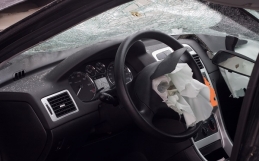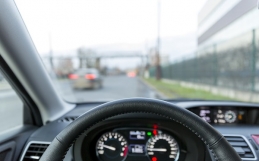Last year, the FBI warned that car hacking is a real risk. A Wired magazine reporter described how he had driven a 2014 Jeep Cherokee down a highway, and two security researchers remotely killed the transmission of the vehicle, proving “beyond any doubt that car hacking is more than an action movie plot device.”
Together with the Department of Transportation (DOT) and the National Highway Traffic and Safety Administration (NHTSA), the FBI released a warning to drivers about the threat of over-the-internet attacks on cars and trucks. According to the public service announcement (PSA). “Motor Vehicles Increasingly Vulnerable to Remote Exploits,” researchers like the ones mentioned above had “demonstrated that they could gain significant control over vehicle functions remotely by exploiting wireless communications vulnerabilities.”
American consumers enjoy all of the modern technologies that enable their vehicles to improve safety, convenience, and fuel economy. But all of the increased connectivity also increases the potential for cybersecurity threats. The PSA explains that our vehicles contain an increasing number of electronic control units (ECUs), computers that control functions like steering, braking, and acceleration. All kinds of vehicle components also have wireless capabilities, from keyless entry systems and tire pressure monitoring to navigation and entertainment systems. All of these new connections to the vehicle architecture “provide portals through which adversaries may be able to remotely attack the vehicle controls and systems.”
The list of vulnerabilities also includes mobile devices such as cell phones connected to the vehicle via USB, Bluetooth, or Wi-Fi. An attacker could remotely exploit these points of communication and gain access to the vehicle’s control network, significantly increasing the safety risk to consumers, especially if someone becomes able to manipulate critical vehicle control systems.
There are ways to protect your vehicle from hacking, reported driving.ca. The tips range from the simple, such as “Don’t use your remote keyless system to lock your doors”; using your car’s lock buttons doesn’t transmit any data. One odd one: “You might want to start putting your keyless fob in the refrigerator at night, or in a box with some tin foil lining.”
Richard Manger, principal of Manger Law Firm, has extensive experience in litigation and settlements, with a focus on personal injury and workers’ compensation law. We are proud of the strong relationships of loyalty and trust we develop with our clients. We go above and beyond to achieve the best possible outcome in your case. You can contact Richard Manger via email at ram@mangerlaw.com, or by calling (336) 882-2000.






